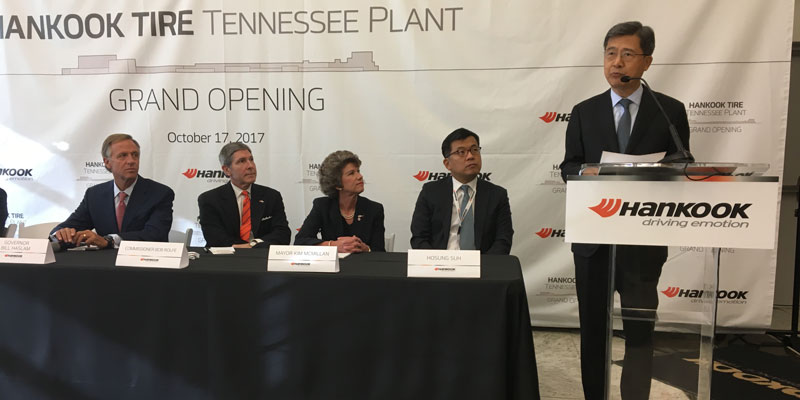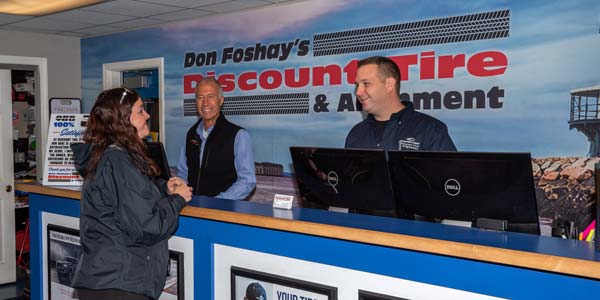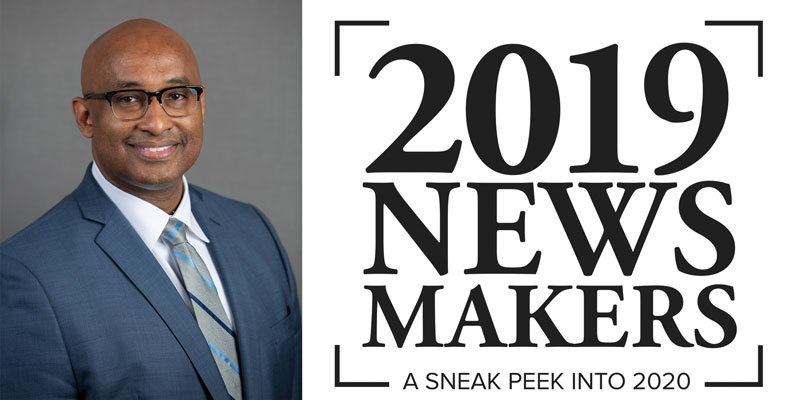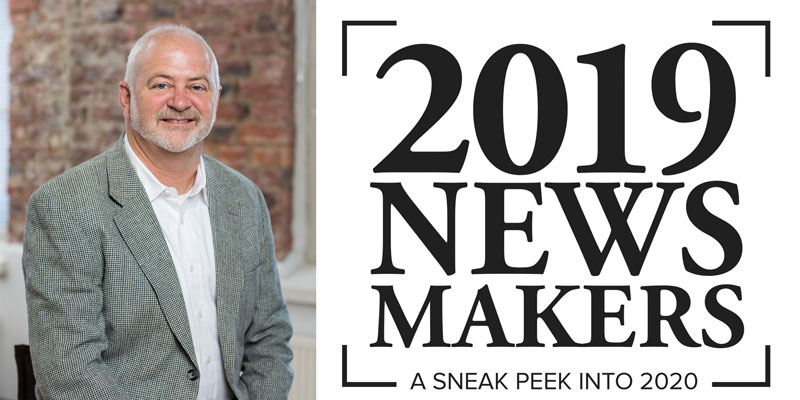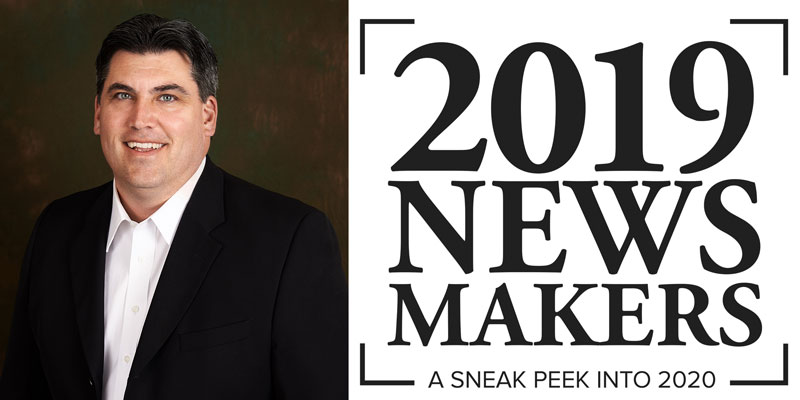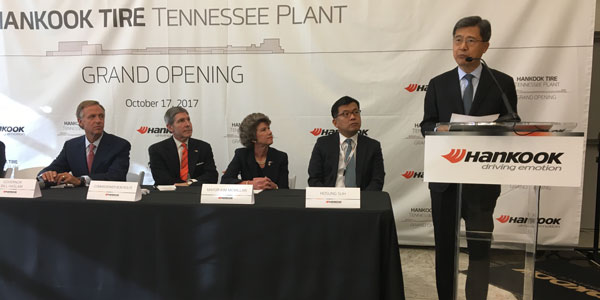
Just as Akron, Ohio, was considered the rubber capital of the world, Tennessee is well on its way to become the automotive hub in the U.S. Just take a look at the numbers: 87 of 95 counties are home to automotive operations in Tennessee. That includes OEMs, such as General Motors, Nissan and Volkswagen and over 900 automotive suppliers, according to the Tennessee Department of Economic and Community Development (TNECD). Take a deeper dive and you’ll see that the state has 25 tire manufacturing establishments, which employ more than 4,200 Tennesseans and have helped increase employment in the state by 31% over the last five years.
Why has the state had so much growth in such a short span? According to the TNECD, the state’s central location makes it easy for companies to manufacture and distribute goods efficiently with 60% of the U.S. population within an 11-hour drive. It also has a pro-business environment with low business taxes, plus no personal income tax on wages and salaries, and the cost of living is 10% below the national average. In 2011, the state also implemented right to work laws, which prohibit the use of union membership status as a condition for getting or keeping a job. According to data from the U.S. Department of Labor, states with right to work laws on the books increased manufacturing employment by close to 6%.
Tire Industry Growth
Since 2011, the TNECD has announced nine projects from tire manufacturing companies, which include the construction of manufacturing facilities to finding a home for their headquarters or back-office operations. Some of those projects include:
- Hankook Tire’s manufacturing facility in Clarksville, which opened in October 2013 with 1,800 job commitments and $800 million in capital investment. Hankook Tire also relocated its North American headquarters to Nashville in April 2016, which resulted in 200 new job commitments and nearly $5 million in capital investment.
- Bridgestone Americas moved its headquarters to Nashville in 1992. And when the company sought to bring its six business units under one roof, it undertook a comprehensive, competitive bid process with several U.S. cities, but ultimately chose Nashville. This move created 600 new job commitments and $232.6 million in capital investments in the state, according to the TNECD.
- Nokian Tyres, which has its North American headquarters in Nashville, has also constructed a facility in Rhea County, which is slated to create 400 new job commitments and $360 million in capital investment.
In total, the nine tire company projects have resulted in 3,200 new job commitments and $1.4 billion in announced capital investment for the state since January 2011, the TNECD reports.
“Tennessee has invested in our success, and we are eager to achieve mutual benefit by providing hundreds of jobs, serving the community, and making some of the world’s safest, most sustainable tires here.”
Wes Boling, Nokian Tyres
Wes Boling, marketing communications director for Nokian Tyres, said the company chose Dayton, Tennessee, as the location for its first North American tire manufacturing facility because of its “ample array of skilled workers, robust state and local support and the state’s favorable location, which gave us the ability to successfully realign our continental distribution network around our factory.
“Dayton’s advantageous location enables us to improve customer service by shortening the lead time of available products for the region and reducing expenditures on customs duties and logistical costs,” Boling says. “And, since the factory will concentrate on passenger, SUV and light truck tires that are mainly sold in the North American market, we’ll be able to enhance our production efficiency and customer service across all of our operations.”
Another aspect that has fueled growth in the automotive sector in Tennessee are the state’s incentives for growth.
“Tennessee has a number of infrastructure and training initiatives that have enabled us to build and staff our world-class facility,” said Nokian’s Boling. “We have received strong support in our quest to equip workers with the skills they need to succeed in our high-tech manufacturing environment.”
Some of those incentives include grants such as the FastTrack Job Training Assistance Program, which assists new or expanding companies with funding to support the training of new full-time employees. The state also offers a myriad of tax credits including one that credits a company for creating a certain number of jobs and another for industrial machinery purchases.
Hosung Suh, president of Hankook Tire America Corp., says the company has benefitted from these programs.
“Hankook received local and state incentives focused heavily on helping us hire and train workers. As a result, we are essentially incentivized for the positive economic impact we provide Clarksville and the state. The bulk of the funding comes in the form of reimbursements for the investments we are making to strengthen the local community,” Suh says.
Anthony Ingham, senior director of communications, Bridgestone Americas, says Bridgestone settled in Tennessee because of its “pro-business climate, its creative spirit and because “it is a great place to live, work and play.” While Bridgestone does not publicly discuss the terms of its investments, economic development and job-creating agreements, Ingham says the company closely analyzes proactive state and local incentive programs for which it is qualified and works with decisionmakers and other stakeholders to maintain its competitiveness when making capital investment decisions.
“We’re proud to be one of the first global companies that saw the promise in Nashville decades ago,” Ingham says. “The city has changed and evolved over time and is now attracting businesses across many different sectors and industries. We hope that our commitment to staying in Nashville and building our new headquarters downtown encourages other major corporations to follow suit…. Building a strong, talented workforce that represents a wide range of backgrounds, experiences and cultures is of highest importance to Bridgestone, and that is something that our state can and does provide.”

Automotive Parts Suppliers and OEMs
Vehicle manufacturers and automotive parts suppliers have also made their home in the state. In fact, employment in the automotive sector has increased 95% in Tennessee over the last 10 years, the TNECD reports. Some of the OEMs responsible for that increase are Nissan, General Motors and Volkswagen. In June 2019, Mitsubishi Motors North America also announced it would move its headquarters from California to Nashville. Because of companies like these, motor vehicle manufacturing employment has increased 123% from 2009 to 2019, the TNECD says. According to the Bureau of Economic Analysis, for every one new automobile manufacturing job, 4.1 more will be created, which signals significant growth yet to come for the state.
Hankook’s Suh says the company’s decision to bring its first U.S. plant to Clarksville was driven by its desire to expand its OE presence. Its Clarksville location also enables Hankook to more efficiently fulfill orders to its U.S. dealers and maximize its supply chain by having a production base in all major markets. In addition, the company cited the area’s “strong workforce” as a reason for settling there.
“The area (Clarksville) is producing talent at a rapid pace, thanks to the Fort Campbell Military Base, Austin Peay State University and the outstanding local school system. We are pleased with the quality of personnel we have hired and trained in Clarksville.”
Automotive parts suppliers have also found that Tennessee is ripe for settling their business in the state. Since 2009, motor vehicle parts manufacturing has increased 87%. Companies like Calsonic Kansei, DENSO, Gestamp, Magna International and SL Tennessee have played a significant role in this increase.
Other parts and accessories manufacturers, as well as manufacturers of equipment, also call Tennessee home. Hennessy Industries, which manufactures Coats tire changers, wheel balancers and accessories as well as Bada wheel weights and Baseline tire changers and wheel balancers, settled in the state 1969 with its headquarters and manufacturing in LaVergne, Tennessee. JPW Industries, manufacturers of Jet Tools, are also in LaVergne. Nearby in Antioch is EnergyLogic, a manufacturer and seller of waste oil heaters and industrial fans, and a little over 20 miles southeast from there is Wegmann Automotive, headquartered in Murfreesboro, which manufactures wheel accessories and battery bushings under the Perfect Equipment, Hofmann and Plombco bands.
With transportation equipment making up almost a quarter of Tennessee’s exports, the state is ripe for continued development in the automotive sector.
“We want to make Tennessee an inviting place where companies continue to create jobs and invest their resources,” the TNECD said in a statement. “We hope to see continued success for Tennessee’s automotive business landscape as well as continued interest in other companies to do business in the Volunteer State.”
It’s Electric!
According to the TNECD, the future of the automotive sector in the state looks bright as well. With the recent surge in electric vehicles, Tennessee appears to be a future hub for electric vehicle manufacturing in the U.S. producing more than 20,000 electric vehicles annually, according to TNECD data. Since 2013, Nissan has produced the all-electric LEAF at its Smyrna, Tennessee plant. Earlier this year, Volkswagen announced an $800 million investment to begin making electric vehicles in Chattanooga. In addition, DENSO recently invested $1 billion in its Marysville facility to manufacture electric vehicle products and systems.
By the numbers
900+ Automotive establishments in Tennessee
25 Tire manufacturing establishments, which employ more than 4,200 Tennesseans
$25+ billion Foreign investments in Tennessee operations
$5.8 billion in Automotive exports in 2017 – an increase of 59% since 2010

